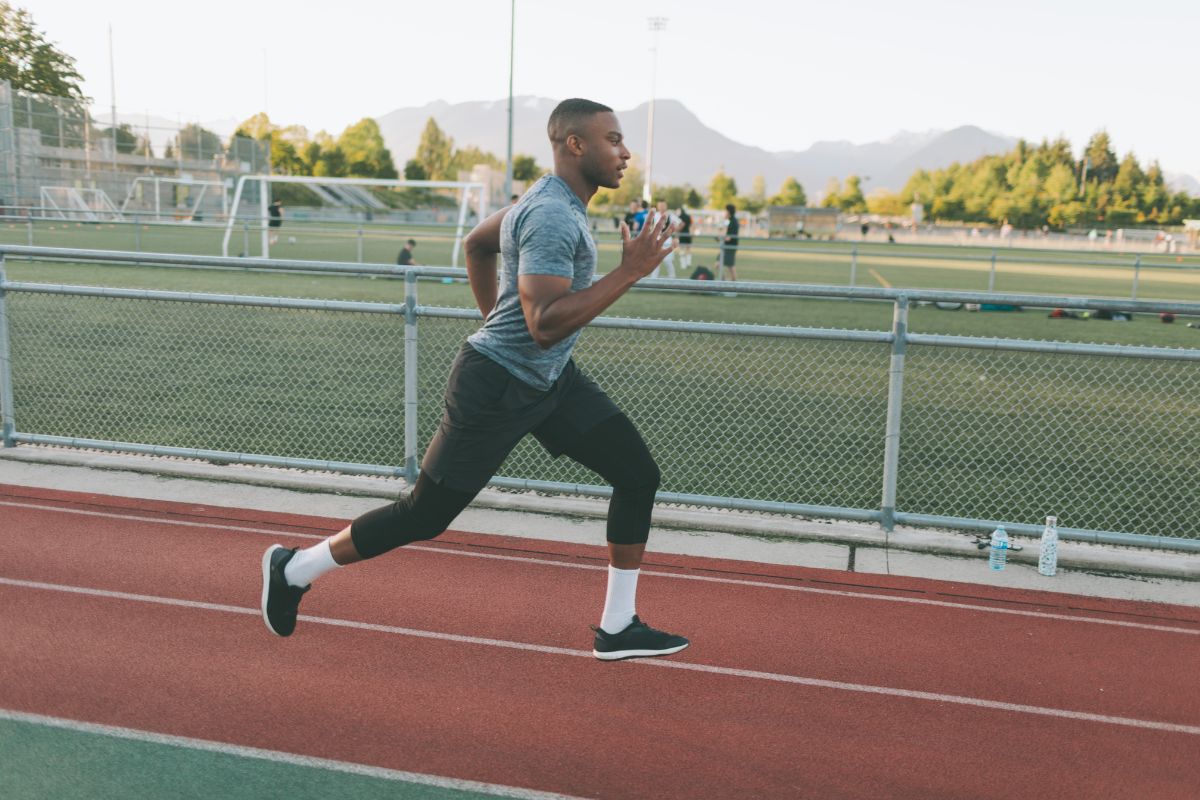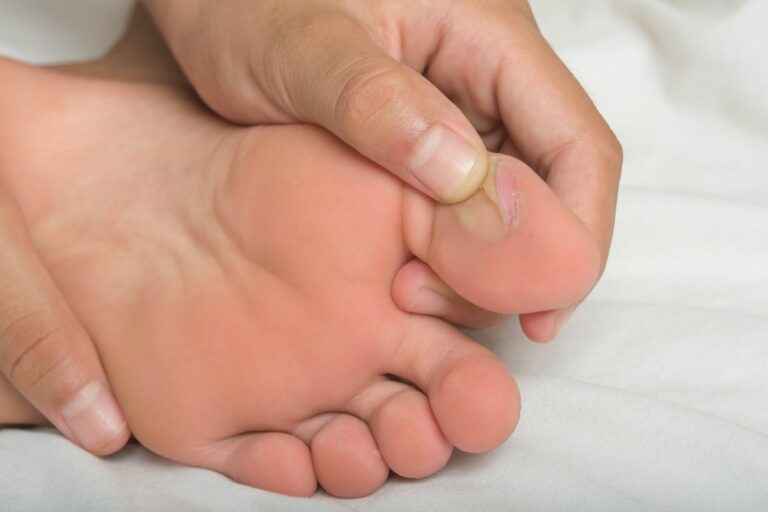Chest Pain When Running: When to Worry and When to Relax

If you have chest pain when running (or after), there may be a couple of reasons why this is happening.
Chest pain is a common concern for many runners, and it’s important to understand the potential causes and how to manage it.
Potential causes for chest pain while running:
- Heartburn
- Chest Muscle Cramps
- Pleurisy
- Overexertion
- Increased Blood Pressure
- Lung Problems
- Pulled Muscle
You can read on to find out more about chest pain and running.
Is It Normal To Feel Chest Pain When Running?
It is common for the chest to feel tight during exercise as the heart is receiving signals from the brain to increase the amount of work that it is doing.
As a result of this, the heart must beat harder to pump more blood and fuel the body.
This is why so many people complain about their chest feeling tight, or even hurting, during and after a run.
However, chest pain can be a serious symptom and should not be ignored. If you experience chest pain while running, you should stop running immediately.
Luckily, chest pain can be a result of various less severe causes.
The true worry comes in when this sort of pain persists hours after a run is complete.
What About Chest Pain After Running?
Experiencing any kind of muscular pain after you finish running is a pretty average side effect of exercise, especially when it comes to your chest.
After all, your body is trying to wind down after it has completed the intense activity!
You physically strain your muscles when you run intensely beyond what they can sustain.
This means the muscles will then start to use the nervous system to send complaints to the brain – such as the soreness and pain that you feel.
Reasons Your Chest May Hurt While Running or After Running
Chest pain is a pretty normal side effect of exercising, especially with activities like running which get your heart pounding.
There are a couple of straightforward reasons why you may feel chest pain after running, which we have listed below.
- Heartburn: If you consume spicy or fried foods before going for a run, this may be a huge cause of heartburn once you finish exercising. As a result, it may lead to intense chest burning that stops you in your tracks.
- Chest Muscle Cramps: Any sort of cramp can cause significant pain and tightness in the chest after you complete your run. These types of cramps happen for many reasons, usually due to dehydration.
- Pleurisy: Conditions like Pleurisy cause sharp chest pains that worsen if you try to take in a deep breath, such as after finishing a run. Being physically active can irritate the membrane that covers the lungs and lines the chest cavity, resulting in chest pain.
- Overexertion: If you aren’t well-conditioned and are experiencing lots of chest pain after running, it may be because you have overdone the amount of running your body can handle.
- Increased Blood Pressure: Running naturally causes very high blood pressure, a spike in the heart rate, and faster breathing. Consuming stimulants such as caffeine to increase your heart rate and blood pressure during exercise can eventually hurt your chest once you have finished running.
- Lung Problems: If your chest hurt occurs directly after you conclude your run, you may suffer from exercise-induced bronchospasm (ESB). This lung spasm causes very sharp chest pains and makes breathing difficult.
- Pulled Muscle: Or, you might have a pulled muscle from your run. Deep and rapid breathing during a run can cause stress to the muscles in your chest, which may result in pain after the workout. If it’s accompanied by a dizzy spell and pain in the arms, it’s best to seek medical help.

What About Your Heart?
If your chest constantly hurts after you complete a run, and you have noticed a pattern, it could be down to an issue ranging from asthma to a potentially fatal heart problem.
This is especially true if you are a little bit older and generally have a weaker heart, or if you suffer from a congenital heart condition that you are already aware of.
But suppose your chest hurts to a point where it is excruciating after completing a run? And you are noticing some common signs, including shortness of breath and pain radiating from your chest to your arms.
In that case, it could be because of something more serious such as a heart attack.
Given the overall seriousness of bad chest pain, it is very important to seek immediate medical attention if you have any concerns.
It likely won’t be the worst-case scenario of a heart attack, for instance, but you can never be too careful!
Any signs of your chest hurting, whether you’re an athlete or simply running for fun, are a huge concern and must be addressed and treated immediately.
What To Do When Chest Pain Persists After Running
You can do two main things if your lungs hurt after running.
Firstly, we’d recommend sitting down with a glass of water to calm yourself and see if that works to calm your racing heart down.
If you have a sore chest and lungs after a considerable time has passed from the exercise, we’d advise you to seek immediate medical advice.
- Go To The Emergency Room: If there are no obvious causes for the pain, it is not easily resolved, or it’s commonly accompanied by fainting, you may want to visit the emergency room. This also applies if you have a family history of heart issues.
- Get A Checkup: If you aren’t worried about your heart but would still like to get it looked at, you can book in to get a general checkup to ensure things are okay. Call your doctor and book an appointment to have peace of mind.
Your doctor will chat with you about the symptoms you are experiencing and will assess your heart, digestive, and lung health. They might then refer you for additional evaluation if your chest and lung pain source are not yet completely clear.
The Bottom Line
There are a couple of simple explanations as to why your chest hurts when running, most of which are not anything to be concerned about.
But if have chest pain after every time you complete a run, it may be time to seek medical advice to check that everything is in working order.






